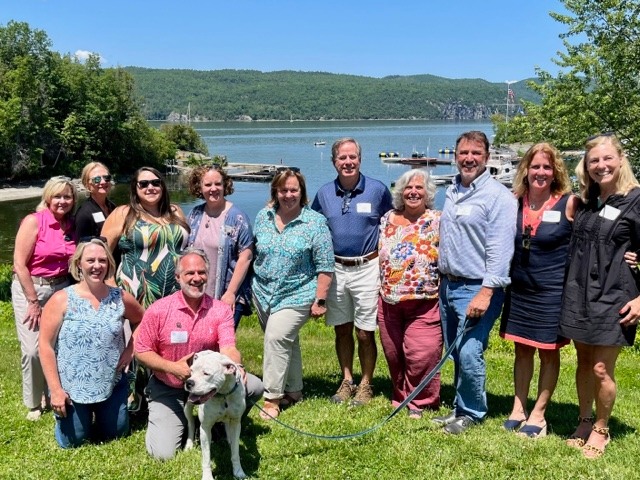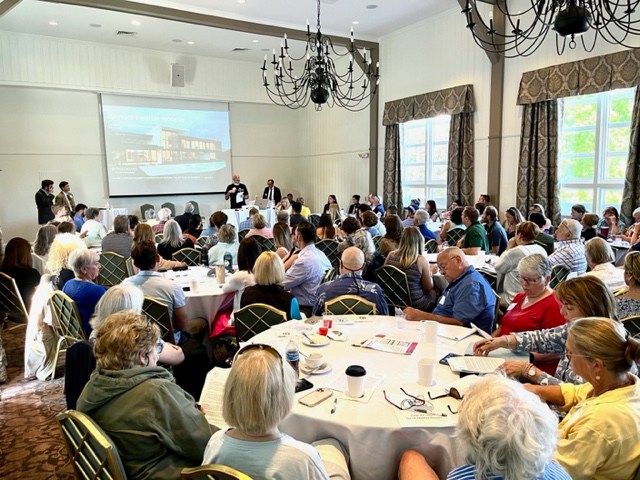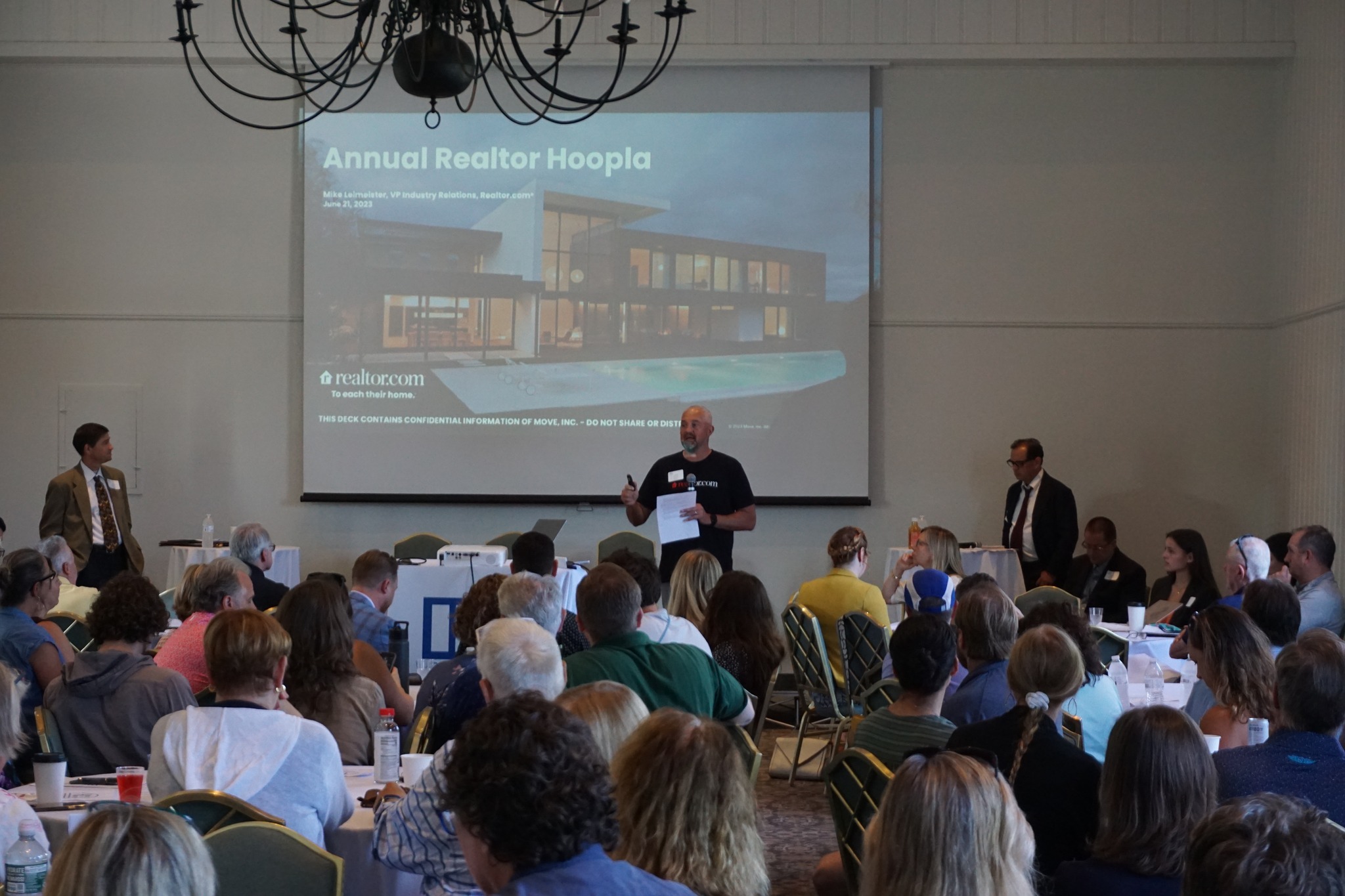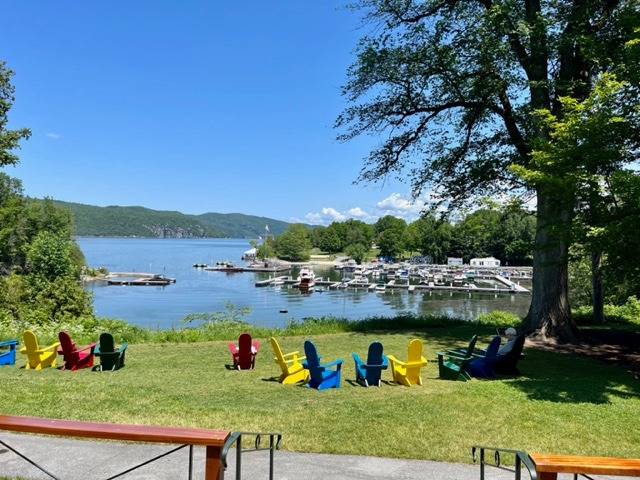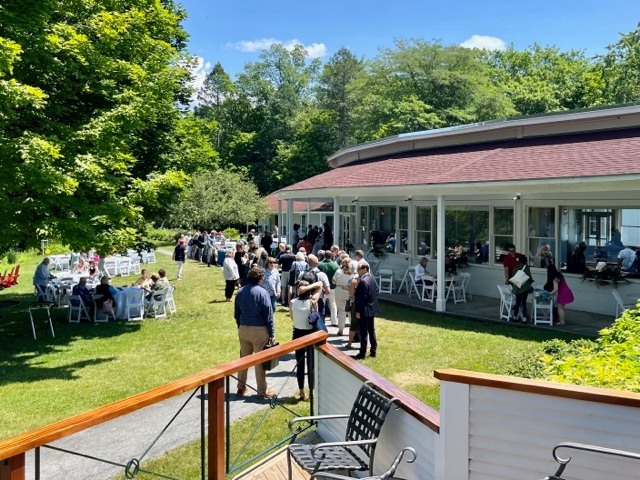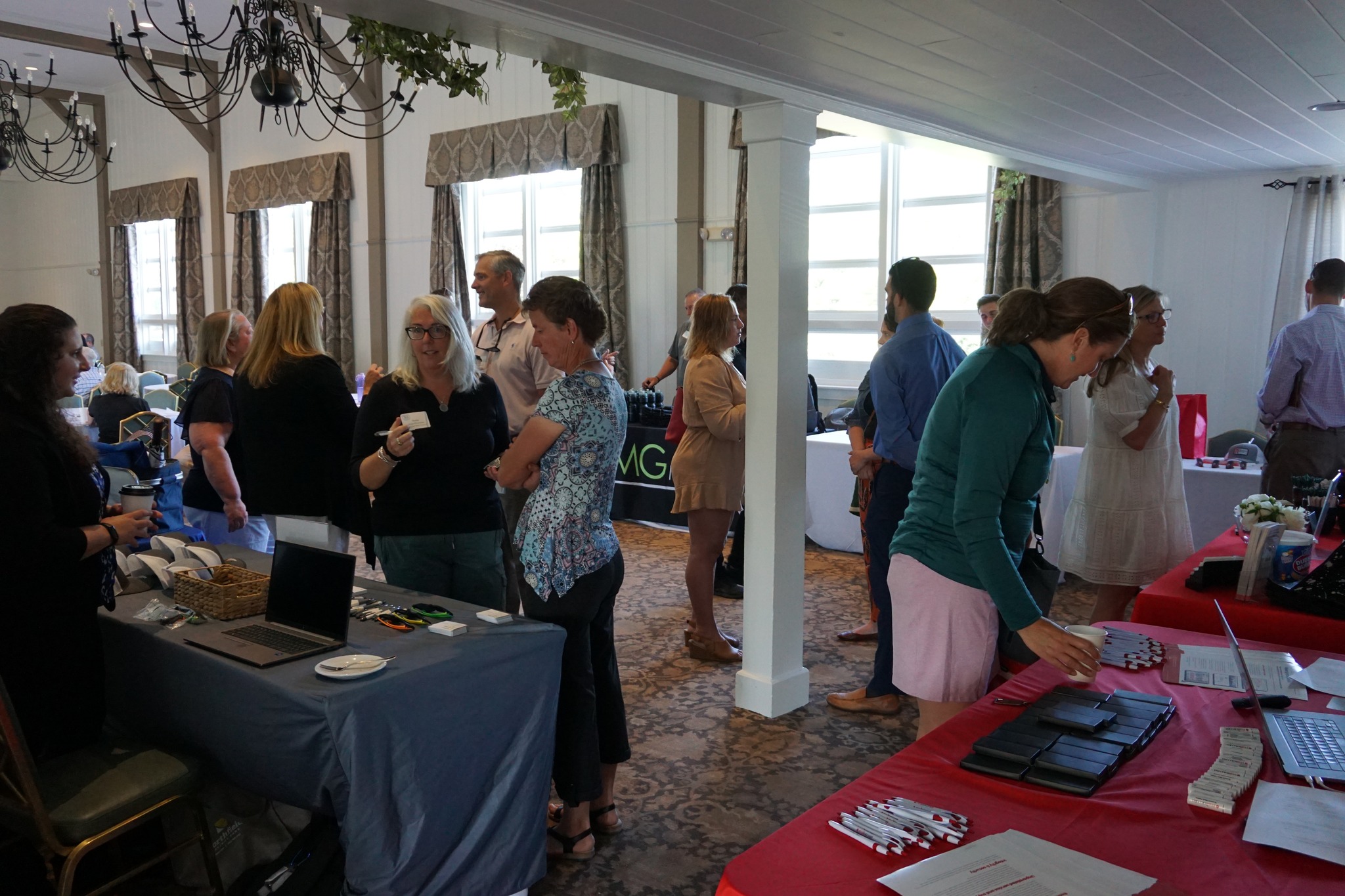VAR Legislative Wrap-Up – 2021
The gavel fell on the 2021 Legislative session on May 21, 2021. This was a year dominated by a virtual State House and Zoom hearings. The year was also unprecedented because the administration and legislature had to plan on how to spend $1 billion of American Rescue Plan Act (ARPA) funding over the next four years.
Approximately half of the ARPA funding was allocated by the Senate in the FY 22 budget, which starts July 1, 2021. Broadly characterized funding will flow equally to health and pandemic recovery, housing, broadband, climate and clean water.
 Realtors® should be aware that funding has also been allocated for property owners. The housing portion of this budget allocates $5M for the Vermont Housing Incentive Program (VHIP) to rehab sub-standard and vacant rental properties. READ MORE
Realtors® should be aware that funding has also been allocated for property owners. The housing portion of this budget allocates $5M for the Vermont Housing Incentive Program (VHIP) to rehab sub-standard and vacant rental properties. READ MORE
The state also made an allocation from previous pandemic funding to provide $5M in mortgage assistance to prevent foreclosure. There is substantial funding for rental assistance that landlords should be aware of as well. READ MORE
Rural broadband development has been front and center in efforts to improve our internet connectivity, and $150M has been allocated for this effort. Much of this funding will flow to Communication Union Districts (CUD’s) for planning and development. It is our hope that the vast majority of these funds will go directly to “last mile” hookups to fill gaps where commercial providers have been unwilling to go.
The budget includes $115M for water and sewer investment and funding to assist in stormwater projects required under the Federal 3-acre rule for properties with more than 3 acres of impervious surfaces. Funding for wastewater treatment projects and to eliminate wet weather sewer overflows is also in the budget for next year. And, there is $11M for brownfield identification and cleanup. This may be useful as we try to identify opportunities for infill development where properties will need remediation before use.
Your VAR Government Affairs Committee has been active considering a variety of legislation proposed during this session. The committee reviews bills and proposed changes and the potential impact on homeownership and the real estate industry. After careful consideration, the committee establishes a position on the issue. VAR focused on the following proposed legislation this year:
Probably the biggest issue for us in this session was the proposal to develop a registry for long- and short-term rentals. THIS BILL DID NOT PASS. Developing a registry for rental properties in the state has been an objective of the legislature over the past two sessions.
The core components of this bill added responsibility for rental property health inspections to the Department of Fire Safety. In addition, owners of rental properties will be required to register these properties with the state. This bill also provided funding to rehab rental properties through the Vermont Housing Investment Program (VHIP) and money for a first-time homeowner rehab and down payment assistance.
As a result of the funding required in this bill, the House Appropriations Committee and the Ways and Means Committee had to approve the expenditures. Action by these committees came too late for the bill to pass out of the House and to be sent to the Senate for their acceptance. Representative Thomas Stevens, chair of the House Committee on General, Housing, and Military Affairs, believes that the bill can be delivered to the Senate if there is a veto override session in June. If there is no veto session the bill will have to wait for the next official opening of the legislature to gain final approval.
On behalf of the VAR Government Affairs Committee and your advocacy staff, we want to thank all Realtors® who participated in two VAR Calls to Action. The Ways and Means Committee introduced this bill to enact a .5% surcharge on the Property Transfer Tax (currently 1.45%) for properties valued over $1M. VAR immediately opposed this action in testimony to the Ways and Means Committee and, because of our first call to action, Realtors® delivered over 250 letters to members of the House of Representatives. While the house did pass H.437 on a party line vote, your efforts set the stage for our opposition in the Senate.
When this bill arrived in the Senate it needed to pass the Rules Committee and was then referred to Senate Finance. Vermont Senator Ann Cummings, chair of the Rules Committee (and a former Realtor®) invited VAR to testify with a focus on the impact on commercial transactions. Ray Ault, commercial broker, and member of our Government Affairs Committee provided key testimony on this issue to Senate Finance.
In addition to back-channel advocacy work, VAR initiated a second, targeted Call to Action to members of Senate Finance. With an open rate of 40%, our members sent so many responses to the committee in the first hour that we had to discontinue the Call to Action. As the committee continued to discuss the surcharge, Senators Randy Brock, Michael Sirotkin and Christopher Bray opposed the bill. For any members who know these Senators, please let them know how much we appreciate their thoughtful consideration.
It is our belief that the Ways and Means Committee, sensing an unwillingness on the part of Senate Finance to accept this bill, added the exact same language to another bill in their possession S.101. In large part our advocacy work in Senate Finance really paid off because Senator Sirotkin, chair of Senate Economic Development, Housing and General Affairs was already convinced that the property transfer tax surcharge should not go forward, and his committee would have to concur for S.101 to pass The bill did not pass.
This bill was brought forward by House Commerce as the economic development bill for this session. While Senate Economic Development did not complete work on this bill, the language and the appropriation became part of the budget bill. As a result, the components of H.159 have been funded and will be implemented once the budget bill has been signed by the Governor.
The budget bill authorizes $2M for tourism and marketing, creates a variety of training and education programs for workforce development, provides grants for Better Places as well as funding for seed capital and recovery grants. All these actions will be authorized once the budget is in place.
Of special interest to Realtors® is the Better Places program. LEARN MORE ABOUT THE PROGRAM
While this topic never made it into legislation it is important for Realtors® to understand what the profile is and prospects for future use. The Building Energy Labelling Work Group (BELIG) was authorized in 2019 to report to the legislature regarding the creation and use of an energy profile. Realtors® were represented by Martha Lang and Tim Heney in the workgroup. The final report of the workgroup proposed the voluntary use of VHEP.
The New England Energy Partnership (NEEP) in conjunction with Clearly Energy have developed a modelling system (VHEP) that provides an estimate of a home’s energy use. An automated valuation system analizes public data to create a default energy profile. Property owners can add specific information about energy bills and efficiency improvements to enhance their profile.
The State of Vermont has three Energy Efficiency Utilities (EEU’s), including Burlington Electric, Vermont Gas and Efficiency Vermont, which is available statewide. These groups have the funding and are determined to make this tool available on a voluntary basis.
Much of the resources of the efficiency groups have been in support of a charter change in Montpelier that directed the city council to implement a time-of-listing requirement for sellers of property to complete the VHEP and provide it to buyers and agents. VAR provided comment in three public hearings and convinced the city council to move slowly, opting for a voluntary approach for the first year of their ordinance. In addition to the mandatory language that will eventually become law in Montpelier, there will be civil penalties for sellers who do not comply with the ordinance.
Efficiency Vermont will continue to push for the mandatory use of the Vermont Home Energy Profile as a standard for properties for sale. Currently these efforts are voluntary as described above. However, if we do not start to embrace the use of this profile, efficiency advocates will push to make the profile a mandatory requirement for the sale of a property.
In late fall 2020, your advocacy team was asked by brokers in the Burlington market and the Northwestern Board of Realtors® to initiate an issues mobilization campaign to oppose the Just Cause / Rent Control Charter Initiative. Utilizing the resources of NAR, we developed a sophisticated public awareness campaign to point out the unintended consequences of this proposed ordinance.
This charter change would limit a landlord’s ability to remove problem tenants except for breach of contract, non-payment of rent or failure accept reasonable renewal terms. Based on research, VAR’s opinion is that this ordinance will cause landlords to withdraw their properties from the rental market. Of great concern is the last requirement to “limit unreasonable rent increases to prevent de facto evictions or non-renewals.” The concept, as described by just cause advocates, is to ensure that landlords cannot simply raise rent to a point where the tenant decides to not renew. However, because of the vagueness of this language, this component of the ordinance will place control of the rental rates entirely in the hands of the tenant, who could then decide what is reasonable. We expect this section of the ordinance will lead to litigation, as the only solution to what is reasonable and will have to be decided by the courts.
In a city where 70% of voters are renters, this charter change passed on town meeting day. Charter changes require approval of the legislature. Chittenden County legislators have proposed that these charter changes be approved in H.448. House Government Operations was introduced to the bill but did not have time to review in detail. As a result, authority to enact this Just Cause / Rent Control ordinance was not approved by the legislature in this session. We have informed the committee that we have conducted extensive research on this topic and wish to testify when they take the bill up, which will likely take place next year.
Planning for Next Year
As your Government Affairs Committee plans for next year, there are two burning topics that we will advocate for in the next session. First, Act 250 reform, which failed in the previous legislative session and received very little focus this year. This 51-year-old land planning system is in serious need of an overhaul. The committee feels that simplified permit reform is one of the few ways that the legislature can provide incentives for builders to develop properties.
Our second issue will be the lack of housing stock, especially in lower price ranges for workforce housing. The Agency of Housing and Community Development understands this lack of supply and we will be working with them over the course of the summer to develop a plan to utilize some of the second half of ARPA funds to support development of new housing.

